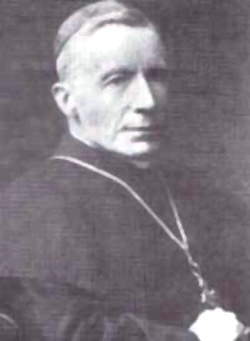The Catholic Church in Colonial America
Marian T. Horvat, Ph.D.
| Relatively little attention has been paid to the relentless hostility toward the Catholics of our 13 English colonies in the period that preceded the American Revolution. Instead, historians have tended to concentrate only on the story of the expansion of the tiny Catholic community of 1785, which possessed no Bishop and hardly 25 priests, into the mighty organization we see today that spreads its branches from the Atlantic to the Pacific. To show this progress of Catholicism is good and legitimate. But to avoid presenting the persecution the Church suffered in the pre-Revolution colonial period is to offer an incomplete or partial history. It ignores the early story of our Catholic ancestors. It would be like describing the History of the Church only after the Edict of Milan, when the Church emerged from the Catacombs, pretending there had never been a glorious but terrible period of martyrdom. An optimistic view that conflicts with reality It should not be surprising that this cloud of general omission concerning Catholicism in the colonial period (1600-1775) should have settled over the Catholic milieu given the optimistic accounts written by such notable Catholic historians as John Gilmary Shea, Thomas Maynard, Theodore Roemer, and Thomas McAvoy. (1) These historians, whose works provided the foundation for Catholic school history books up until recently (when a different kind of revisionist history is replacing them), only briefly acknowledge and downplay a period of repression and persecution of Catholics. What they have stressed is what might be called the "positive" stage of Catholic colonial history that begins in the period of the American Revolution. This period has been glossed with an unrealistic interpretation that freedom of religion was unequivocally established and the bitter, deeply-entrenched anti-Catholicism miraculously dissolved in the new atmosphere of tolerance and liberty for all. This in fact did not happen. Roots of a bad Ecumenism Here I propose to dispel this myth that America was from its very beginning a country that championed freedom of religion. In fact, in the colonial period, a virulent anti-Catholicism reigned and the general hounding and harrying of Catholics was supported by legislation limiting their rights and freedom.
First, both before and especially after the American Revolution, a general spirit of tolerance to a Protestant culture and way of life was made by some Catholics in order to be accepted in society. Such accommodation, I would contend, has continued into our days. Second, to enter the realm of politics and avoid suspicions of being monarchists or "papists," colonial American Catholics were prepared to accept the revolutionary idea of the separation of Church and State as a great good not only for this country, but for Catholic Europe as well. Both civil and religious authorities in America openly proclaimed the need to abandon supposedly archaic and "medieval positions" in face of new conditions and democratic politics. For these reasons, some hundred years after the American Revolution, Pope Leo XIII addressed his famous letter Testem benevolentiae (January 22, 1889) to Cardinal Gibbons, accusing and condemning the general complacence with Protestantism and the adoption of naturalist premises by Catholics in the United States. He titled this censurable attitude Americanism. Americanism, therefore, is essentially a precursory religious experience of bad Ecumenism made in our country, while at the same time Modernism was growing in Europe with analogous tendencies and ideas. The partial presentation of colonial American history by so many authors helps to sustain that erroneous ecumenical spirit. I hope that showing the historic hatred that Protestantism had for Catholicism can serve to help snuff out this Americanist - that is, liberal or modernist - behavior among Catholics of our country. Read the rest: http://www.traditioninaction.org/History/B_001_Colonies.html |

No comments:
Post a Comment